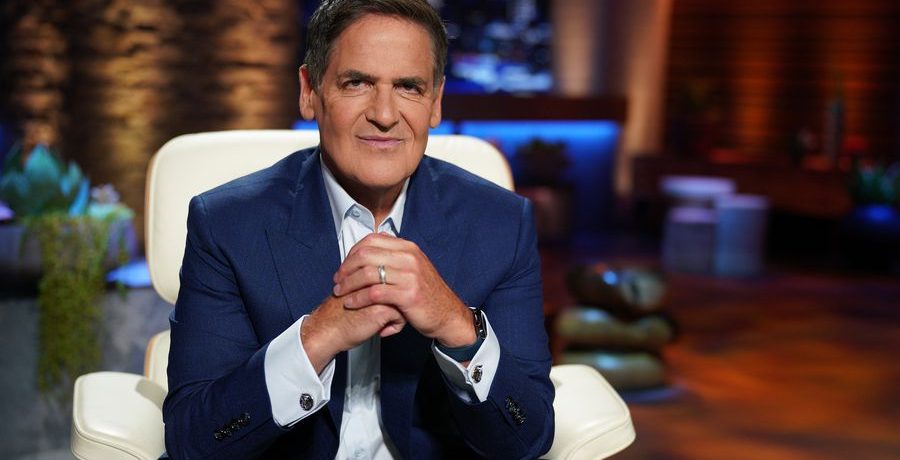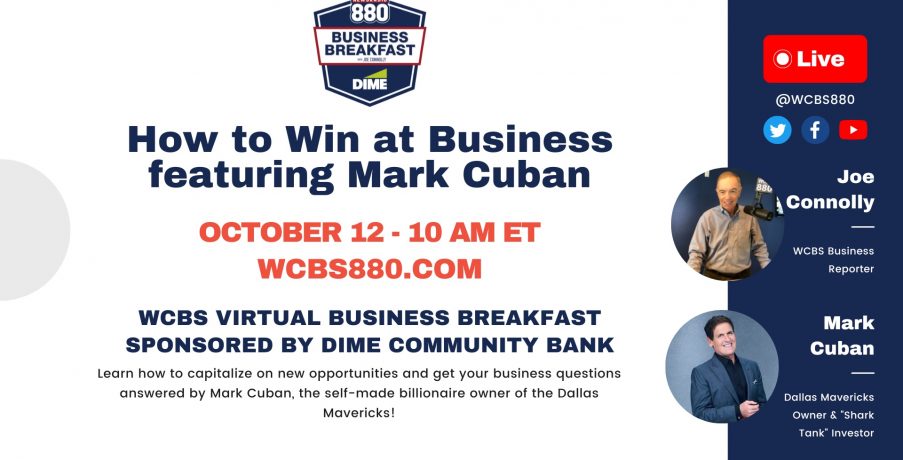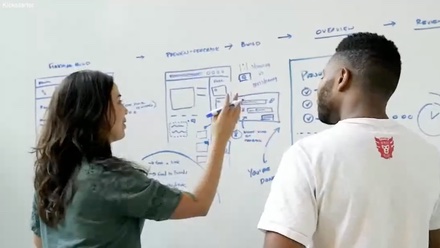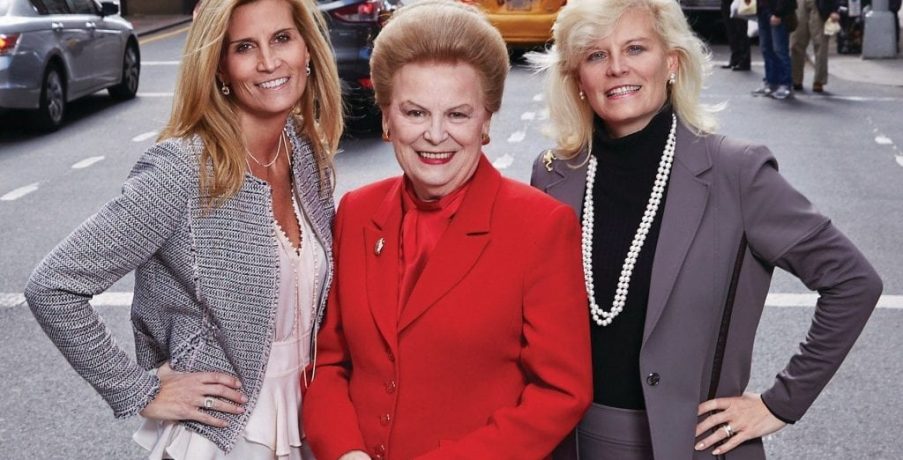
-
WATCH: Mark Cuban Shares 5 Business and Life Lessons
In Best Of, Entertainment, Featured, Guest, Interview, Latest, News Stories, Sports, Technology, The World, Top News, videosPost Views: 449By Joe Connolly and Neil A. Carousso
NEW YORK (WCBS 880) — Mark Cuban, one of America’s best known entrepreneurs, spent an hour with WCBS 880 for a special Virtual Business Breakfast, presented by Dime Community Bank. It was a program filled with lessons on business and life.
Here are some of the actionable and inspiring takeaways from the “Shark Tank” star. The full event is available to watch on-demand above.
1. Always Be Learning
Cuban told the WCBS Virtual Business Breakfast he tries to spend an hour a day trying to learn something new about the many industries in which he’s invested. That can be anything from reading about algorithm changes to Instagram and how that impacts digital sales strategy to new technologies.
“I think one of the easiest ways to get a competitive advantage in any business is just to put in the time to learn,” he said.
The self-made billionaire said the business owner must be the best salesperson in a company because he or she cannot hire someone to know their business better than them.
“I call it home run hiring. And it might be you’re trying to find an employee and you think, ‘Well, if I just hired the right marketing person or the right SEO person or the right salesperson, they’ll solve my problems,'” explained Cuban. “That rarely, rarely, rarely, if ever, works. If you find yourself having to turn to someone on the outside because you haven’t been able to put in the time, not only is it hard to find a person that’s going to solve your problems, but you don’t even know the right things to tell them because you don’t understand the issues that you’re trying to solve.”
He advised business owners to put the time in to learn their business inside out, so they can ask the right questions of a potential new employee.
2. Don’t Overspend on Inventory
“Every entrepreneur does it,” said Cuban.
The Shark tells the business owners he’s invested in on the show to be realistic or they risk spending themselves out of business.
“When they write a business plan, they get in front of their spreadsheet and they start thinking, ‘Okay, if I can sell six of these, this covers my cost here. Twelve of those—no I can sell more than 12, I’ll sell a hundred.’ And all of a sudden, you know, you’ve got these pie in the sky numbers that have no base in reality.”
3. Don’t Rack Up College Debt
It’s not worth it, says the business mogul and father of three.
“If you can’t afford college without taking out a loan, which for many people that’s a reality, I’m a big believer (that) you go to community college for the first two years because introduction to sociology, introduction to accounting, introduction to calculus, it’s the same at Harvard as it is at Richland Community College.”
Cuban told WCBS 880 debt will hurt you more than attending an expensive college will help.
4. Teaching Financial Responsibility to Kids
How does a billionaire teach financial responsibility to his kids? “It’s hard,” Cuban admits, but said it’s important to teach money lessons early.
“(My kids) had to find ways to earn money to be able to buy the big things they wanted because we weren’t just going to buy them whatever they wanted,” he said. “And they also had to understand what things cost and if something was too expensive, they weren’t going to get it.”
5. Practice Self-Care
You may think someone like Mark Cuban works 24/7, but he said it’s vital for him to take mental breaks.
“I always have one thing that I do that allows me to de-stress, and I go shoot baskets,” said Cuban of his passion for basketball. “I have a little basket out in the backyard, I can go to the gym, I can go to the arena or (the Dallas Mavericks) practice facility when no one else is there and just get up shots. And that allows me just to feel good because the sound of the ball going through the net, all problems go away for that second, right? And if I’m missing shots, I’m thinking about my shot. I’m not thinking about, ‘What about this customer?’ Or, ‘Can we add this drug to CostPlusDrugs.com,’ etc.? Everybody’s got to find that one release that they have that just diverts their attention from everything that they’re doing.”
The Mavs and Cost Plus Drugs owner also declared “nice sells” and helps to reduce stress for yourself and company stakeholders.
“Be nice. You know, nice sells. Nice is one of the easiest assets that you can have in your company. And when you have a culture of being really nice to each other and nice to customers, nice to prospects, things work out a lot better.”
See more tips for business and life success from Mark Cuban on the WCBS Virtual Business Breakfast, presented by Dime Community Bank. The hour-long program is at the top of this page.
-
How to Win at Business featuring Mark Cuban: WCBS Virtual Business Breakfast LIVE, sponsored by Dime Community Bank
In Best Of, Entertainment, Featured, Guest, Interview, Latest, News Stories, Technology, The World, Top News, videosPost Views: 587Wednesday October 12 – 10 AM EDT
Streaming at WCBS880.com and @WCBS880 on Twitter, Facebook and YouTube
By Joe Connolly and Neil A. Carousso
NEW YORK (WCBS 880) – Join WCBS business reporter Joe Connolly LIVE for a discussion with Mark Cuban, the self-made billionaire entrepreneur and owner of the NBA’s Dallas Mavericks, on Wednesday, October 12 at 10 AM ET.
You will learn how to capitalize on new opportunities no matter the economic climate. Cuban will also answer your business questions, which you can submit in real time by commenting during the livestream on our Twitter, Facebook, and YouTube pages.
Cuban will opine on what New York’s businesses must do to be competitive and thrive post-pandemic. We know the outspoken shark will be brutally honest when it comes to sales and marketing strategies and economic policy!
Mark Cuban started his first business at 12 years old by selling garbage bags door-to-door in the Pittsburgh suburb where he was raised. He founded and sold a software company to CompuServe, a subsidiary of H&H Block, in 1990.
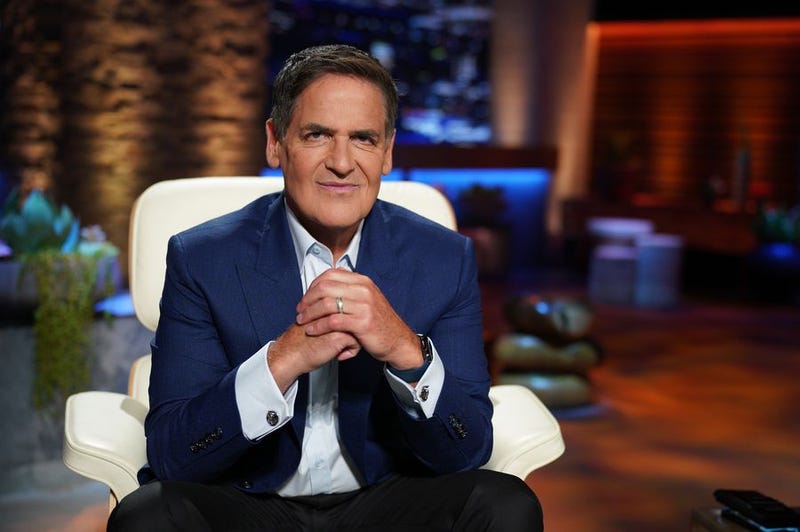
Mark Cuban Photo credit ABC/Christopher Willard His next venture was evolutionary. He helped launch one of the first sports streaming networks, Broadcast.com, where fans could listen to niche sporting events in other markets online. Cuban always believed streaming would surpass television and saw growing demand for those who wanted to watch games at their desks. The serial entrepreneur sold Broadcast.com to Yahoo! in 1999 for $5.7 billion.
Forbes ranks the Mavericks owner #227 on the Forbes 400 Richest People in America list with an estimated net worth of $4.6 billion.
Cuban is one of America’s best-known investors on ABC’s “Shark Tank” where he has inspired future generations to pursue entrepreneurship.

Mark Cuban evaluates an investment opportunity on “Shark Tank.” Photo credit ABC The shark recently founded Cost Plus Drugs to add transparency to the pharmaceutical industry by communicating drug costs to patients who pay a 15 percent markup on the manufacturing cost of their medications, plus a $3 pharmacy fee and $5 shipping charge. Cuban hopes it will help lower national drug prices of lifesaving medications. He even encourages competition to accomplish that larger goal.
On the WCBS Virtual Business Breakfast, sponsored by Dime Community Bank, you’ll come away with inspiration and actionable ideas from Cuban to grow your business and pursue your entrepreneurial dreams.
Don’t miss out on this once-in-a-lifetime opportunity to participate in a conversation with one of America’s most popular entrepreneurs!
-
What to do about the vacant offices that are slowing NYC’s economic recovery
Post Views: 483By Joe Connolly and Neil A. Carousso
NEW YORK (WCBS 880) — Traffic volume into Manhattan soared after Labor Day as many companies began requiring employees to be in the office at least three days a week and Wall Street firms, including JP Morgan and Goldman Sachs, nixed remote work altogether. Still, many office buildings remain mostly empty.
Office occupancy in New York City was just 38 percent last week, according to Kastle Systems, which tracks building swipes. That’s a 3.5 percent increase from the last week of August when many white collar workers ditch their business suits for bathing suits down the Shore or out East in the Hamptons.
“This could be a 10 to 20 year painful process where we have vacant buildings that were once assets to our communities, now, will be liabilities unless we put policies in place that streamline the approval process to convert these buildings and provide economic incentives to help facilitate that,” said Scott Rechler, chairman and chief executive officer of RXR, on the WCBS Small Business Spotlight, sponsored by Dime Community Bank.
Rechler, who sits on the boards of the New York Federal Reserve and the MTA, points to New York’s recovery from 9/11 when rezoning enabled many office buildings in Lower Manhattan to be converted to apartments.
“If we can do that, we could take that, you know, 10 to 20 year period and bring it down to a five to 10 year period.”
The real estate developer said those conversions will allow buildings to be competitive in a post-pandemic environment.
“Buildings that can provide the highest level of experience and engagement and what we call ‘third spaces’ where people can collaborate and bond and become parts of broader communities will actually thrive. But, buildings that are more commodity-like – class B buildings, class C buildings that aren’t close to public transit – frankly are going to become obsolete,” said Rechler.
RXR is looking at converting some of their Manhattan office buildings into mixed-use buildings where New Yorkers can work and live, which Rechler calls part of the “post-pandemic playbook” to attract more workers to the city.
“If you look at our multi-family portfolio – and we have 10,000 units of multi-family – we’re 99 percent occupied,” he said. “I’m optimistic because the people is (sic) the fuel that drives the long-term vitality of this economy and they’ve come back.”
He told WCBS 880 the next step is for real estate developers, like himself, to create affordable housing to attract more talent to the five boroughs. A lack of housing inventory has led to an increase in home prices and rents. Rents in RXR buildings, Rechler said, are 10-20 percent higher than they were before the pandemic.
New office buildings now include amenities such as health and wellness spaces to incentivize employees to work in-person.
The firm is also noticing companies headquartered in Manhattan are opening satellite offices in their buildings on Long Island and New Jersey.
“Companies want to have spots that are closer to where people live both for affordability and convenience,” Rechler said. “So you see a number of banks, for example, have opened up offices in New Jersey or some of the pharmaceutical companies and the same thing we’re seeing in Nassau County.”
“That will enable people to live closer to home and have a shorter commute for part of the week or the whole week, depending where they are, but still be able to convene in New York City with all their peers where you can focus on culture building, ideation, collaboration, that you can’t get if everyone’s working independently.”
Rechler sees the city is transitioning from a Manhattan-centric economy to what he calls a “superstar region,” which he believes will be more sustainable post-pandemic.
See more on the future of the office on the Small Business Spotlight video above.
-
Kickstarter Pilots 4-Day Workweek, Keeps Employees Remote
Post Views: 443By Joe Connolly and Neil A. Carousso
NEW YORK (WCBS 880) — Kickstarter is experimenting with a four-day, 32-hour workweek, which has gained momentum in parts of Europe as the pandemic shined a light on the need for work-life balance.
The six-month pilot program began in April. Early results are promising, according to the Brooklyn-based crowdsourcing company. It has seen improved efficiencies company-wide.
“The four-day workweek for us has been an exercise that’s allowed us to really improve all of those sort of dynamics in our business so that employees are more engaged,” said Kickstarter chief strategy officer Jon Leland on the WCBS Small Business Spotlight, sponsored by Dime Community Bank.
“When they come to work, they are rested and more focused, they’re all more motivated to get their work done faster,” he said.
Leland said Kickstarter’s operations have already improved after cutting some of the major time sucks.
“Meetings are the number one killer of time,” he said. “There’s a lot of aspects of sort of documentation or just dumb processes that have gotten built up over time that people just continue to do that they know doesn’t really matter and isn’t useful.”
The CSO told WCBS 880 the company has “empowered” middle managers to eliminate redundancies and streamline workflow.
The four-day workweek comes without any reduction in salaries or benefits. The company has also decided to keep its employees remote because of productivity and to save on rent.
“From a real estate perspective, because we had to look at this as well, it’s just very expensive to own or lease and run an office setting if you’re not using it five days a week,” said Leland. “It just didn’t make financial sense.”
Kickstarter will measure the program’s success by revenue and money raised for startups on the platform.
It has recently seen a bump in new investments in e-commerce and gaming businesses.
“Tabletop games has (sic) become just a massive part of the Kickstarter ecosystem because I think people want to spend time with each other, also doing things in real life together, and tabletop board games are a great way of doing that. So, we’ve seen that emerge as just a really massive part of our business.”
Leland said the biggest backing Kickstarter ever hosted on its platform was earlier this year when author Brandon Sanderson raised $41.7 million to publish books he wrote during the pandemic.
See more on the WCBS Small Business Spotlight video above.
-
Travel Consultants in Demand as Business Travelers Return to Skies
Post Views: 575By Joe Connolly and Neil A. Carousso
NEW YORK (WCBS 880) — As business travel begins to pick up, agencies are discovering new post-pandemic expectations.
“This ‘bleisure’ theme is definitely coming back,” said Jennifer Wilson-Buttigieg, co-president of Valerie Wilson Travel, on the WCBS Small Business Spotlight, sponsored by Dime Community Bank.
“Bleisure” is a portmanteau of “business” and “leisure,” which grew in popularity as people enjoyed working remotely from scenic getaways and vacation hotspots.
“We’ve seen companies want to have culture and community and focus on their core values. And they’re doing it with offsite meetings. They’re doing it with retreats.”
Valerie Wilson Travel noticed the owners of small and medium-sized businesses were among the first to fly again.
“(Small business owners) were the first ones to get back on the road, because they wanted to see their customer. They wanted to look them in the eye, shake their hand, thank them for their business,” said Wilson-Buttigieg.
The Manhattan-based firm employs a team of industry specialists working day and night to cater to corporate clients.
“We have employees that work on different accounts or different businesses like leisure, corporate, cruises, safaris,” she said. “And then we have independent contractors who run their own business under our umbrella. And as an independent contractor, they certainly could work 24/7, but we do also utilize a 24/7 service.”
VWT’s corporate and individual clients turn to its advisors for more personalized service, which is at the roots of the business.
“Knowing that time is the most precious commodity, whether you travel for business or vacation, you want it to be the experience you’re planning,” Wilson-Buttigieg said. “And no differently than having a professional help you on a will or sell a home or do your taxes, the role of the advisor has been elevated.”
Her mother Valerie Wilson started the company in 1981 after she could not find a travel consultant who would give her trip across Europe the individual attention she desired. Wilson returned home and launched Valerie Wilson Travel.

Photo credit Valerie Wilson Travel “We’re in the business of serving and we love the travel industry,” said Wilson-Buttigieg.
Valerie Wilson Travel was acquired by another family-owned business, Frosch International Travel, in April 2021 because the Wilson family did not want to lay off any employees during the height of COVID when its business was down as much as 95%.
“We were so excited to bring these two powerhouse brands together, but with the goal of saving as many employees, jobs and benefits during this very challenging period, because we knew travel would eventually rebound and we’re going to need them,” the second-generation president said.
Research suggests 60% of family-owned businesses fail to transition to the second-generation, while third-generation businesses fail nearly 90% of the time. For VWT, the bond between sister co-presidents – Wilson-Buttigieg and Kimberly Wilson Wetty – leading the second-generation appears strong.
“We try to text each other as sisters and we email each other as colleagues,” said Wilson-Buttigieg.
See more on this thriving family-owned business and the changes in travel on the WCBS Small Business Spotlight video above.
The World
Social Feeds

VIDEO: Told the airline to book us on the next flight out (SPONTANEOUS TRIP!)

VIDEO: The Taylor Swift Effect | WCBS Business Breakfast

VIDEO: Future of NYC | WCBS Business Breakfast

VIDEO: Reasons for New Yorkers to be Optimistic | WCBS Business Breakfast

VIDEO: NYC's AI Chatbot | WCBS Business Breakfast


